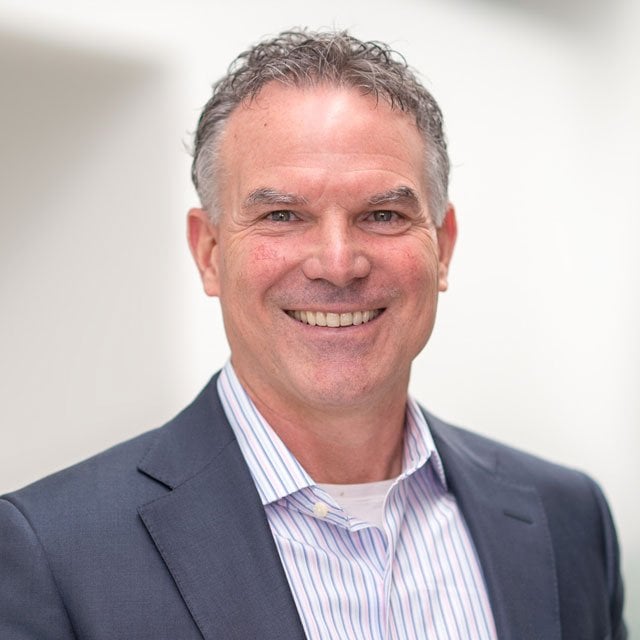Clients Hate This Popular Investing Strategy, Vanguard Researcher Says

“Portfolio diversification helps mitigate the risk of [one’s] losing investments over time,” Fran Kinniry, head of Vanguard Group’s Investment Advisor Research Center, tells ThinkAdvisor in an interview.
Typically, however, clients just don’t get what diversification is for. That makes it “probably a necessary evil. It’s almost a hated strategy because it always makes sure that the portfolio has something that’s in the bottom quartile,” Kinniry says.
Conducting research at Vanguard for 25 years now, Kinniry and his team create empirically based “advisor-friendly” research — as he calls it — to help improve financial advisors’ financial planning skills and deepen their insights, thus achieving better client outcomes.
The Research Center works with both advisors and end clients.
During the interview, in exploring financial planning versus other investing strategies, Kinniry identifies two strategies as “zero-sum games” and one — financial planning — that’s a “positive-sum game.”
Kinniry’s research suggests that behavioral coaching is “likely the single most important service advisors can provide to clients.”
And in the interview, he strongly urges advisors to embrace it.
For starters, coaching can help investors make better choices. Vanguard research shows that the same process and logic that investors instinctively use to choose everything from a toaster to a surgeon simply doesn’t work when it comes to the investment markets.
Elsewhere in the interview, Kinniry discusses retirement spending and how, through a dynamic distribution strategy, “a small reduction in annual spending” after a big market downturn can make retirees’ money last longer.
Kinniry joined Vanguard in 1997 and for 18 years was global head of portfolio construction. In 2019, he started the Private Investment team, which he helmed.
Prior to Vanguard, he was a partner at Executive Investment Advisors and a portfolio manager at H. Katz Capital Group.
ThinkAdvisor recently interviewed Kinniry, who was speaking by phone from Vanguard headquarters in Valley Forge, Pennsylvania.
Here’s some of his timely research that advisors should be sure to ponder: “Technology will reduce the time an advisor spends not just on administrative tasks but also on much of what advisors have traditionally defined their value proposition around.”
Following are excerpts from our interview:
THINKADVISOR: You’ve conducted research on the “enduring principles” of diversification and argue that “diversification remains quite commonly misunderstood.” Please explain.
FRAN KINNIRY: Most investors don’t understand why they’re always going to have a poorly performing investment. But the bottom line about diversification is that you try to add assets that have different recurring patterns and different correlations.
Something that may be doing poorly in a one-year, three-year, five-year episode that has similar returns over 10 and 20 years is the exact definition of diversification.
Clients hate [that]. And when they see an underperforming asset, if they’re [investing] on their own, nine times out of 10 they’ll probably sell it.
Diversification is probably a necessary evil. It’s almost a hated strategy because it always makes sure that the portfolio has something that’s in the bottom quartile.
But diversification helps mitigate the risk of losing investments over time.
New research you’ve just released, “Right Mindset, Wrong Market,” shows that “insights gained by investment analysis and evaluations based on past performance fail to produce the desired outcomes when applied to investments.” Please elaborate.
Investors apply the same logic to investing that they apply everywhere else because it works everywhere else. But it doesn’t work in the investment markets. That’s why we see investors trail the markets. It’s because of their own behavior.
We studied industry over industry — restaurants, hotels, universities, surgeons, consumer products — and time after time, there is “persistence.” That is, if you’re in the top category of, say, colleges, you remain there.
If you have a 4-star Michelin restaurant rating, you don’t see that becoming a one-star restaurant.
What process do investors use when researching investing?
Investors apply the same process as if buying a toaster or having knee surgery: They look at the reports and read the rankings.
But if you look at the best asset class over the last five or 10 years, or even the best manager, you don’t see “persistence.” You see cyclicality and regime switching.
Why wouldn’t you want to buy the asset class that outperformed for the last 10 years? A behavioral coach helps investors understand why that natural intuition doesn’t [work] with investing.
Is such coaching done on an ongoing basis?
Yes, it’s a big part of the everyday conversation but also in anxious moments that matter when markets are down. For instance, COVID-19’s occurring or the Silicon Valley Bank’s failing.
That’s when clients call advisors and say, “I want to move my 60/40 portfolio to cash.”
An advisor coaching them to stay the course can add value in a 15-minute phone conversation — one that’s been built on many years of planning and proactive coaching.
One single coaching opportunity could more than justify a lifetime of client advisor fees.
Anxious moments happen almost on a weekly or monthly basis. Something comes up that drives the market up 3% to 5% or down 3% to 5%.
But the market shouldn’t drive your decisions. That’s proven to be an unsuccessful strategy. You [should] only change the portfolio if something changes within the goals, objectives and risk tolerances of the client, not of the markets.
Your “Advisor’s Alpha Guide to Proactive Behavioral Coaching” says that “by focusing on planning, proactivity and positivity, advisors can coach their clients to success.”
How can you add alpha through financial planning versus trying to outperform the market?




